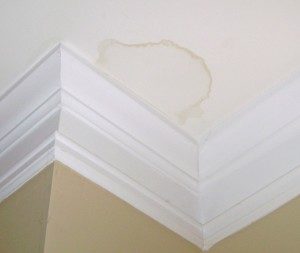Learn About Main Factors Contributing To Water Leakage in Your Home
Learn About Main Factors Contributing To Water Leakage in Your Home
Blog Article
Everybody is bound to have their own unique piece of advice on the subject of Most Common Causes of Leaky Pipes.

Leakages not just create waste of water yet can additionally cause unnecessary damage to your residence as well as advertise undesirable natural development. However, water leakages could go undetected because the majority of the pipework in our home is hidden. By understanding and looking for day-to-day scenarios that cause leaks, you can protect your home from future leakages and unnecessary damage. Today, we will certainly consider six leak causes that may be triggering your pipelines to leak.
Immediate temperature level modifications.
Severe temperature adjustments in our pipes can cause them to increase and contract unexpectedly. This growth and also contraction might cause splits in the pipes, especially if the temperature are below freezing. If you kept an eye on exactly how your plumbing functions, it would be best. The presence of the previously mentioned circumstances regularly suggests a high risk.
Rusty water supply
As time passes by, your plumbing system ages as well as corrosion such as rust may start gnawing the pipes. This might be the root cause of staining or warping on your pipes. This requires an evaluation with your plumber instantly. If our plumbing system is old, think about replacing the pipelines given that they go to a higher risk of deterioration than the newer versions.
Defective Pipe Joints
The point at which your pipelines attach is regularly the weakest web link in the waterline. Pipe joints can wear away gradually, resulting in water leaks. Regrettably, the majority of pipeline joints are not easily visible. If you have loud pipes that make ticking or banging noises, especially when the hot water is turned on, your pipeline joints are probably under a lot of stress. It is recommended to have your plumber examine your system annually.
Elbowing in origins
Most water leaks begin outside the house instead than inside it. You could see damp spots or sinkholes in your backyard, as well as that might indicate that tree roots are getting into water lines causing water to leak out.
Poor Water Connectors
At times, a leak can be caused by loose pipes and also pipelines that supply your appliances. In case of a water connections leakage, you might observe water running straight from the supply line or pools around your devices.
Obstructed Drains
Obstructed drains pipes might be aggravating and inconveniencing, however they can in some cases end up creating an overflow leading to break pipes. Keep eliminating any products that might drop your drains that could block them to prevent such inconveniences.
All the above are sources of leaks but not all water leakages result from plumbing leakages; some leakages may come from roofing leakages. All leakages need to be repaired right away to avoid water damages.
Leaks not just cause waste of water yet can likewise create unnecessary damages to your residence as well as advertise unwanted organic development. By looking and comprehending for day-to-day situations that trigger leakages, you can safeguard your residence from future leakages and unnecessary damage. Today, we will look at 6 leakage creates that might be causing your pipes to drip.
At times, a leak can be caused by loosened hoses and also pipelines that supply your devices. In situation of a water connections leak, you may discover water running directly from the supply line or pools around your home appliances.
How To Check For Water Leak In Your Home
How To Check for Leaks
The average household's leaks can account for nearly 10,000 gallons of water wasted every year and ten percent of homes have leaks that waste 90 gallons or more per day. Common types of leaks found in the home are worn toilet flappers, dripping faucets, and other leaking valves. These types of leaks are often easy to fix, requiring only a few tools and hardware that can pay for themselves in water savings. Fixing easily corrected household water leaks can save homeowners about 10 percent on their water bills.
To check for leaks in your home, you first need to determine whether you're wasting water and then identify the source of the leak. Here are some tips for finding leaks:
Take a look at your water usage during a colder month, such as January or February. If a family of four exceeds 12,000 gallons per month, there are serious leaks.
Check your water meter before and after a two-hour period when no water is being used. If the meter changes at all, you probably have a leak.
Identify toilet leaks by placing a drop of food coloring in the toilet tank. If any color shows up in the bowl after 10 minutes, you have a leak. (Be sure to flush immediately after the experiment to avoid staining the tank.)
Examine faucet gaskets and pipe fittings for any water on the outside of the pipe to check for surface leaks.
Undetected water leaks can happen without the home or business owner even realizing. If you suspect a water leak, but not able to find the source. It is time to contact a professional water leak detection service, The Leak Doctor.
How To Find a Water Leak In Your Home
https://www.leakdoctor.com/blog/How-To-Check-For-Water-Leak-In-Your-Home_AE197.html

We had been introduced to that article on How to Find Water Leaks from a friend on a different blog. Are you aware of somebody else who is fascinated with the subject? Be sure promote it. Thanks so much for taking the time to read it.
Explore Now Report this page